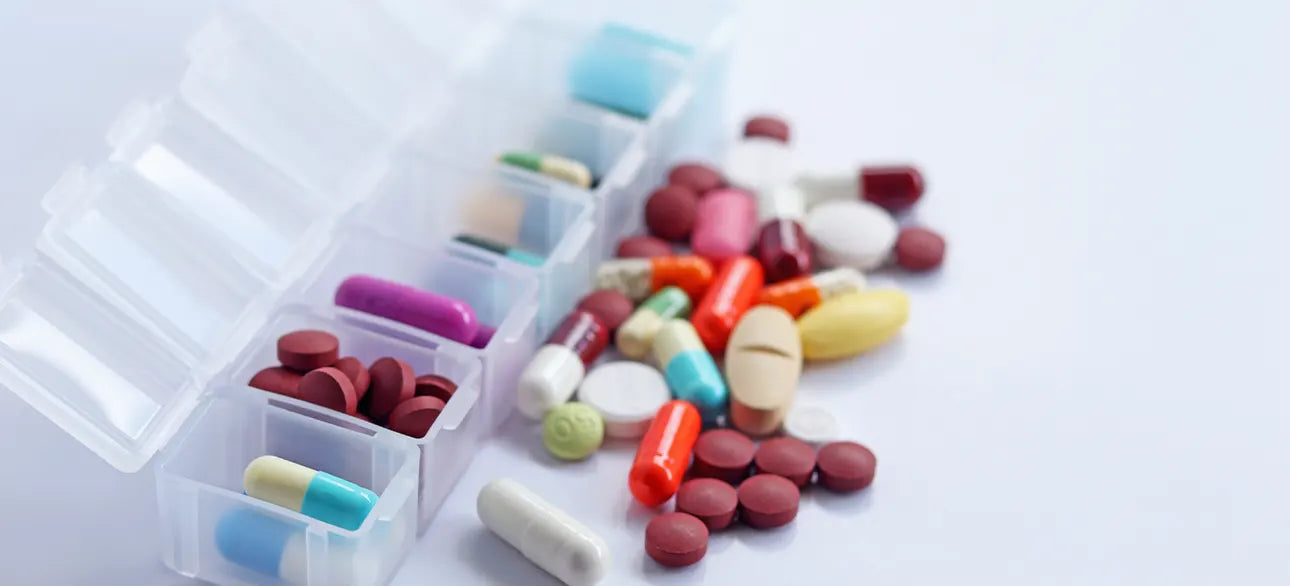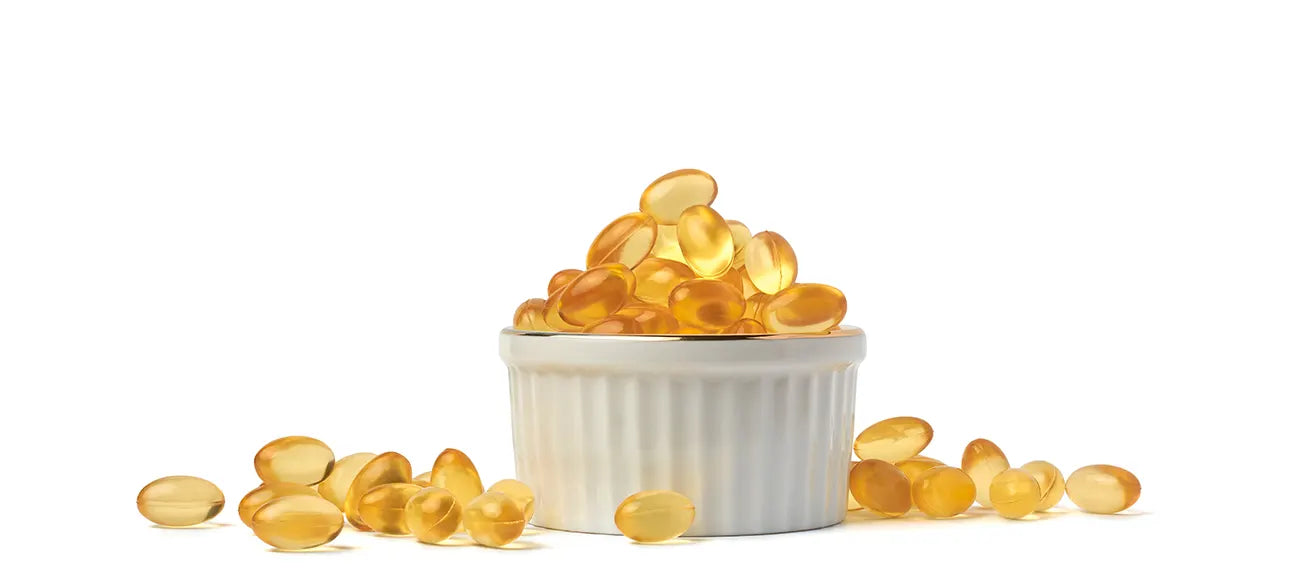How Much Zinc Should You Take Daily?
Learn the recommended daily intake of zinc based on age, gender, and life stage. Discover the benefits of zinc, signs of deficiency, best food sources, and when supplementation might be necessary.
Advertiser Disclosure: We independently select all the products. If you click through links we provide, we may earn a commission.

Zinc is a tiny mineral that greatly protects your health. For better immunity, repairing wounds and growing cells, this vital nutrient plays a major role.
So, what’s the right amount of zinc your body needs daily? Is it smarter to introduce it to your diet through food or supplements? This guide will teach you all you need to know.
What Is Zinc?
Zinc is an essential trace mineral your body can’t produce, so you must get it through food or supplements.
This mineral helps various bodily processes such as strengthening your immunity, helping wounds close and supporting DNA formation. Zinc is involved in regulating your taste and smell. When your body doesn’t have enough zinc, it can affect the way these important processes work and your general wellness.
Because zinc benefits many parts of your body, being sure your levels are adequate supports your overall strength and resilience daily.
Zinc is vital for many bodily functions; while diet usually suffices, being aware of individual needs and avoiding both deficiency and excess is key." - Dr. Walter Willett, Harvard Nutrition Researcher
How Much Zinc Do You Need Each Day?
The amount of zinc you need depends on your age, gender, and life stage. Here’s a quick breakdown of the daily recommended amounts:
- Infants 0–6 months: 2 mg
- Infants 7–12 months: 3 mg
- Children 1–3 years: 3 mg
- Children 4–8 years: 5 mg
- Boys & Girls 9–13 years: 8 mg
- Men 14 years and older: 11 mg
- Women 14 years and older: 8 mg
- Pregnant women: 11-12 mg
- Breastfeeding women: 12-13 mg
Pregnant and breastfeeding women need extra zinc to support their own health and their baby’s development.
Signs You Might Need More Zinc
Zinc deficiency is hard to spot because its signs resemble those seen in other health problems. However, certain little details might indicate your body could use more:
- Many colds, flu or other health complications
- Healing takes a longer time
- Not feeling like eating
- Weakening of the hair strands or declining hair on the scalp
- Conditions such as acne or eczema
- Irritation in the mouth
- Wearing out or being grouchy
Who is most likely to be low in zinc?
Some groups are at higher risk of having too little zinc. It’s possible for vegetarians and vegans to get less zinc from their diet as zinc in plant-based food is harder for your body to absorb. Zinc absorption can be harder in older adults and they may lower their main sources of zinc-rich food.
People who have Crohn’s disease or celiac disease may not be able to properly take in zinc. A body stressed by inflammation or persistent ailments is likely to require more zinc which can make deficiency more common.
If you notice these problems or are more vulnerable, make sure you discuss your zinc levels with a medical professional to stay healthy.
Health Benefits of Zinc
 Health Benefits of Zinc
Health Benefits of Zinc
- Immune Support: Taking zinc can strengthen the immune system and often reduce the length of typical common cold symptoms by approximately 33%.
- Enzyme Function: Works as a cofactor with more than 300 enzymes needed for digestion, metabolism and other cell functions.
- Stable Blood Sugar: Improves how insulin works in the body and helps control blood sugar which helps prevent type 2 diabetes.
- Skin Health: Using zinc sulfate in skincare can help reduce redness and symptoms related to acne, helping to give you clearer skin.
- Heart Health: May support heart health by helping to lower LDL (bad) cholesterol and triglycerides which also reduces the risk of heart disease.
- Eye Health: It can stop age-related macular degeneration from worsening, preventing vision loss.
- Sexual Health: Supports hormone production and reproductive health, including testosterone levels and sperm quality.
Foods High in Zinc
Your best choice for zinc is to consume foods that contain it. While most zinc in your diet probably comes from animal products, you can get it from plants as well. There are several excellent sources for this topic:
- Oysters: Oysters give you by far the most zinc of any food, with a greater amount than most other foods have.
- Beef and lamb: Beef and lamb are both great at delivering zinc when you eat them.
- Pumpkin seeds: Chewing on pumpkin seeds offers good zinc and they make for tasty additions to any salad or snack time.
- Chickpeas and Lentils: You can get zinc and fiber in one place with chickpeas and lentils which are also high in protein.
- Cashews: Cashews are a good alternative if you are following a vegetarian diet; they supply moderate amounts of zinc and healthy fats.
- Yogurt and cheese: Eating yogurt and cheese can help with zinc and with your digestive system.
- Quinoa and Spinach: These give you zinc which makes up for some of your intake if you don’t eat meat.
Tip: Some plant foods have phytates which may reduce the body’s ability to absorb zinc. When you soak, sprout, or ferment beans, seeds and grains, it helps lower phytates and allows your body to use the zinc inside better.
Having different foods from these groups can give you the zinc your body needs. Here is a YouTube short on 12 zinc-rich foods.
Should You Take a Zinc Supplement?
The nutrition that most people get from a balanced diet usually meets their zinc needs. Still, supplements can be helpful for some people.
- If your test indicates you are deficient in zinc
- If you are pregnant, breastfeeding, and not meeting your needs by eating
- If you are vegan or vegetarian
- If you suffer from Crohn’s disease or ulcerative colitis, nutrient absorption may be disrupted.
- If you want to increase secual stamina, sometimes taking zinc supplements like PeakErect may help you.
Different forms of zinc supplements exist:
- Zinc gluconate: Common and widely used, often found in lozenges.
- Zinc sulfate: Effective but may cause stomach upset in some people.
- Zinc acetate: Also used in lozenges; may be better absorbed.
- Zinc picolinate: Known for better absorption and gentler on the stomach.
You should take a formula that’s gentle to your stomach and pay attention to the dosage instructions.
Can You Get Too Much Zinc?
Yes. Taking too much zinc can cause side effects like nausea, vomiting, diarrhea, headaches, and even disrupt your immune function. Long-term excessive intake can interfere with copper absorption, leading to deficiencies.
The safe upper limits for zinc intake per day are:
- Children 1–3 years: 7 mg
- Children 4–8 years: 12 mg
- Adults: 40 mg
Always avoid exceeding these limits unless directed by a healthcare professional.
Zinc and Other Medicines
Zinc can interact with certain medications and nutrients, including:
- Antibiotics (like tetracyclines and quinolones), zinc can reduce their effectiveness if taken together
- Penicillamine (used for Wilson’s disease), where zinc may reduce absorption
- Copper supplements, since high zinc can block copper uptake
To avoid issues, take zinc supplements a few hours apart from these medications and always consult your healthcare provider.
Conclusion
While zinc is essential for health, make sure you don’t overconsume it. Get your recommended daily zinc intake by eating a diet that is both meat and plant-based.
Some people need supplements such as pregnant women or dieters, but taking too much without consulting a healthcare provider can result in health complications. Be sure to see a healthcare professional before using any form of zinc supplement.
Having the right amount helps your body stay healthy, develop and function effectively and securely.
FAQs
References
Flawless Bloom has strict sourcing policies and relies on primary sources such as medical organizations, academic institutions, governmental agencies, and peer-reviewed scientific journals. Read more about how we ensure our content is accurate, thorough, and unbiased by reading our editorial process.
- Zinc - Health Professional Fact Sheet https://ods.od.nih.gov/factsheets/Zinc-HealthProfessional/
- Zinc lozenges and the common cold: a meta-analysis comparing zinc acetate and zinc gluconate, and the role of zinc dosage - PubMed https://pubmed.ncbi.nlm.nih.gov/28515951/
- Zinc - StatPearls - NCBI Bookshelf https://www.ncbi.nlm.nih.gov/books/NBK547698/
- Intracellular zinc in insulin secretion and action: a determinant of diabetes risk? - PubMed https://pubmed.ncbi.nlm.nih.gov/26365743/
- An Open-label Study Comparing Oral Zinc to Lymecycline in the Treatment of Acne Vulgaris - PMC https://pmc.ncbi.nlm.nih.gov/articles/PMC8211333/
- Effects of Zinc supplementation on serum lipids: a systematic review and meta-analysis https://pmc.ncbi.nlm.nih.gov/articles/PMC4523910/
- Zinc supplementation inhibits complement activation in age-related macular degeneration - PubMed https://pubmed.ncbi.nlm.nih.gov/25393287/
- Zinc is an Essential Element for Male Fertility: A Review of Zn Roles in Men’s Health, Germination, Sperm Quality, and Fertilization - PMC https://pmc.ncbi.nlm.nih.gov/articles/PMC6010824/
- Comparative absorption of zinc picolinate, zinc citrate and zinc gluconate in humans - PubMed https://pubmed.ncbi.nlm.nih.gov/3630857/





























